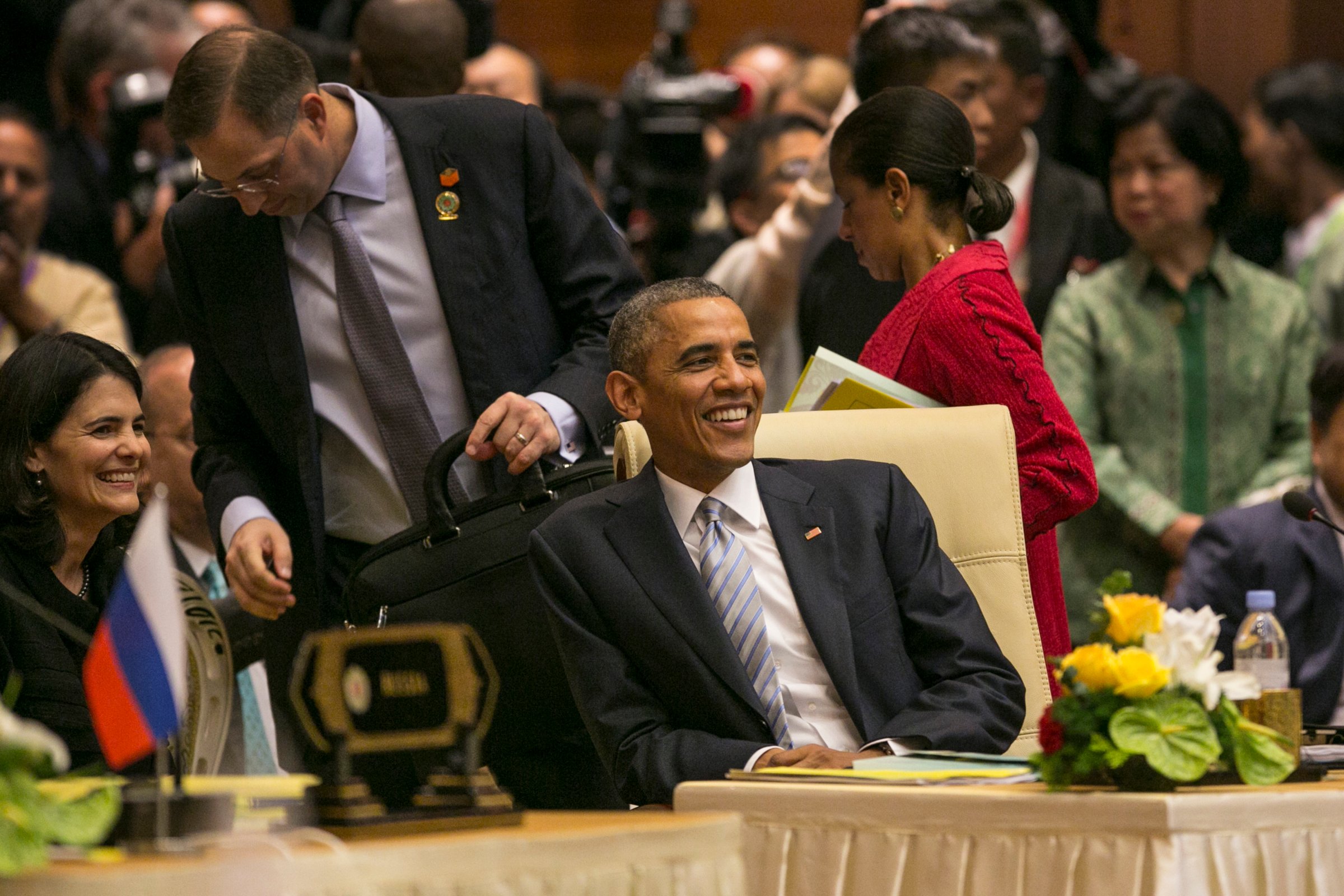
When President Barack Obama hosted his new Chinese counterpart Xi Jinping at the Sunnylands estate at Rancho Mirage, Calif., in June 2013, the hope was that the world’s two most powerful men would forge a friendship.
Dubbed the “shirt-sleeves summit,” it was supposed to mark the start of a new kind of superpower relationship, a move away from Cold War thinking to something warmer. But in a sign that U.S.-China relations are chilly in 2016, Obama returns to Sunnylands on Monday to meet with leaders of the Association of Southeast Asian Nations, or ASEAN, a group that includes antagonistic neighbors involved in tense territorial disputes with China.
Critics say that in trying to gain strategic influence in China’s backyard, the Obama Administration is ignoring and potentially exacerbating a worsening situation for human rights and democracy in the region.
Guests at the two-day summit starting Monday will include Thailand’s military ruler Prayuth Chan-ocha, who has stamped out dissent and has appeared in no rush to hold elections since his junta replaced an elected government in May 2014.
Malaysian Prime Minister Najib Razak arrives with questions still unanswered about almost $700 million that appeared in his bank account. Najib declared the matter finished when the country’s attorney general said the payment was merely a gift from the Saudi Arabian royal family, but critics domestic and foreign are unconvinced. Meanwhile, Najib’s political rival, Anwar Ibrahim, has been in jail for more than a year on a widely questioned sodomy conviction.
Then there’s Cambodian Prime Minister Hun Sen, who has ruled the country since the 1980s but has long been denied the credibility of an official invitation to the U.S. because of his authoritarian tendencies. Opposition leader Sam Rainsy has recently returned to self-imposed exile fleeing defamation charges.
Also in attendance will be leaders from one-party Vietnam, where the press is under state control and critical bloggers have been jailed, and Laos, whose ruling Communist Party denies its people basic freedoms.
The Washington Post has described the summit as “an unseemly parade of dictators,” noting that only Indonesia’s and the Philippines’ leaders were chosen by fair democratic means.
A positive story in the region is Burma, where Aung San Suu Kyi’s opposition won elections in November, ending decades of military rule. (The outgoing President, former general Thein Sein, announced this week that he would not attend the summit). But the bloc also includes the Sultanate of Brunei and Singapore, which has been run by the same party since 1959.
“The risk is that the Sunnylands summit will empower and embolden ASEAN leaders who have been responsible for jailing journalists, cracking down on peaceful protesters, and dismantling democratic institutions after coups,” said John Sifton, Asia advocacy director for Human Rights Watch.
Others argue that the U.S. has to get its hands dirty if it is to retain any influence in Asia as China becomes more assertive. The Chinese government’s island-building campaign in the South China Sea has especially angered the Vietnam and the Philippines, creating opportunities for American alliance building.
The region is also a rare patch of good economic news — together the 10 ASEAN countries would be the world’s seventh largest economy — another reason cited for U.S. engagement.
Aaron Connelly, a researcher at the Lowy Institute for International Policy in Sydney, wrote this week that the U.S. was right to deal with the entirety of ASEAN, an institution that “supports the liberal international order.” He added: “Quiet but firm conversations at the summit could support liberalization on the domestic level, too.”
More Must-Reads from TIME
- Breaking Down the 2024 Election Calendar
- How Nayib Bukele’s ‘Iron Fist’ Has Transformed El Salvador
- What if Ultra-Processed Foods Aren’t as Bad as You Think?
- How Ukraine Beat Russia in the Battle of the Black Sea
- Long COVID Looks Different in Kids
- How Project 2025 Would Jeopardize Americans’ Health
- What a $129 Frying Pan Says About America’s Eating Habits
- The 32 Most Anticipated Books of Fall 2024
Write to Simon Lewis at simon_daniel.lewis@timeasia.com